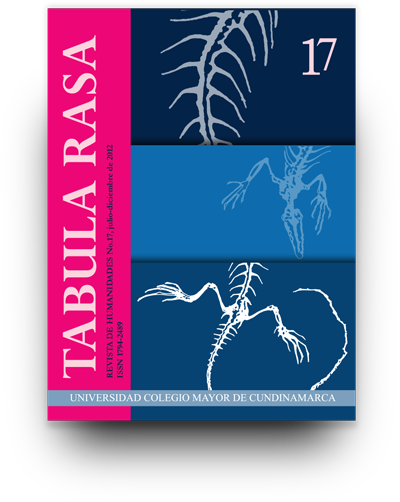
Esteban Díaz Montenegro Universidad del Cauca, Colombia Abstract: This paper aims to discuss some key theoretical issues on language revitalization and bilingual education in communities that are acknowledged as indigenous in the department of Cauca, Colombia. To do so, a succinct review is made of some key concepts and viable analytical realms for a critical […]
Geny Gonzales Castaño gkgonsalesc1@hotmail.com Universidad del Cauca, Colombia Abstract: This paper reflects on the way political drivers tracing limits and conditions to language planning today are established in relation to policies of cultural and linguistic diversity acknowledgement and management by Colombian state. In order to do this I will focus on the revitalization process of […]
Ingrid Díaz Moreno ingridiazmo@gmail.com Pontificia Universidad Javeriana, Colombia Abstract: This paper describes and analyzes patrimonialization of a series of archaeological pieces in order to analyze some dimensions in the formation of local state. This work focuses on a recent process performed at a small village in the department of Meta. My proposal oscillates between two dimensions […]
Sergio Ramírez seramirezdiaz@gmail.com Pontificia Universidad Javeriana, Colombia Abstract: Puerto Gaitán municipality, in the department of Meta, has become important on the Colombian economic map. In this paper, I will show the formation of Puerto Gaitán in the last years, exploring changes in the modes of land exploitation, production and use, and the emergence of the […]
Ana María Troncoso ana_maria_troncoso@hotmail.com Universidad nacional de la Patagonia San Juan Bosco (UNPSJB) Trelew-Argentina Mariela Flores Torres marielaflorestorres@gmail.com Universidad nacional de la Patagonia San Juan Bosco (UNPSJB) Trelew-Argentina Abstract: We aim to work with some particular concepts of post-colonial criticism so as to try to interpretate and elucidate potential agencies in subjects targetted by what […]
Noelia Carrasco Henríquez noeliacarrasco@udec.cl Universidad de Concepción, Chile Abstract: An ethnographic approach to private economic sector in a country like Chile could appear obvious for anthropological work. In fact, this is the country that served as a laboratory for designing and testing neoliberal theses, which are the ones critically and massively blamed to “govern world”. Likewise, […]
Mariano Di Pasquale mariano.dipasquale@gmail.com Universidad Nacional de Tres de Febrero, Argentina Abstract: This paper aims to analyze a series of reflections around the phenomenon of ideology as an analytical tool. To do this, some central components in Teun van Dijk’s model will be analyzed so that the link between ideology and power is highlighted. Slavoj […]
Shane Greene sgreene@indiana.edu Indiana University, USA Abstract: This paper develops some theory about feminist punk politics as emerged in Lima during the tense period of political violence Peru was immersed in the 80s. While Sendero Luminoso Maoist revolutionaries in Peru were ideologically encouraging young wome to play as armed militants, a punk artist in Lima […]
Beatriz Rodríguez bbalanta@smu.edu Southern Methodist University, Texas, USA Abstract: In this paper, I show that in the age of freedom and equality statements, the ethnographic images produced by Comisión Corográfica (a major geographic project in mid-nineteenth century Colombia) promotes and provides aesthetic tools that normalize, codify, and reify racial ideologies at a time in Colombian […]
Joanne Rappaport rappapoj@georgetown.edu Georgetown University, USA Abstract: This article examines what early modern bureaucrats thought people of different calidades–indio, mestizo, negro, mulato, espanol–looked like, inquiring into narrative portraits drawn in a variety of legal circumstances. Colonial administrators were not so much concerned with the characteristics of broad social categories but with the appearance of individuals, […]